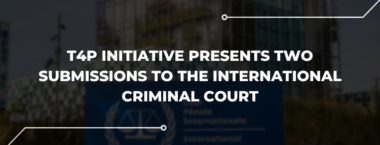
Torments, Torture Chambers, Executions: T4P Initiative Presents Two Submissions to the International Criminal Court
Information about extrajudicial executions of Ukrainians by the Russian military and Russian torture chambers in...
28 September 2023
27.04.2018
On April 25, 2018 press conference “What will protect ordinary people during the conflict? Presentation of civil society’s legislative initiative” was held in Kyiv.
On April 18, 2018 Draft Law On the Principles of State Policy on Protecting Human Rights in the Context of Overcoming the Consequences of the Armed Conflict was announced during a hearing of the Parliamentary Committee on Human Rights, Ethnic Minorities and International Relations, developed in November 2017 by a working group under the Parliamentary Commissioner for Human Rights. The group consisted of experts from the Commissioner’s Secretariat, Ukrainian Helsinki Human Rights Union, UNHCR, Ministry of Temporarily Occupied Territories and IDPs, NGOs Group of Influence, Crimean Human Rights Protection Group, Crimea SOS, Human Rights Information Center, as well as of People’s Deputies of Ukraine. The draft law was a result of UHHRU’s two-year work in the field of transitional justice and the practical work of the Ombudsperson and partner organizations on overcoming the consequences of the armed conflict.
Valeriya Lutkovska, Parliamentary Commissioner for Human Rights in 2012-2018 and now Head of the Ukrainian Institute for Human Rights, remarked that the bill is extremely relevant for the Ukrainian human rights community. “It is very important to determine how the country is going to live after we regain control over the border with Russia, when Crimea’s annexation will end and Ukraine will be in full control of its entire territory. We had to do it yesterday, and we most definitely must do it today,” she said.
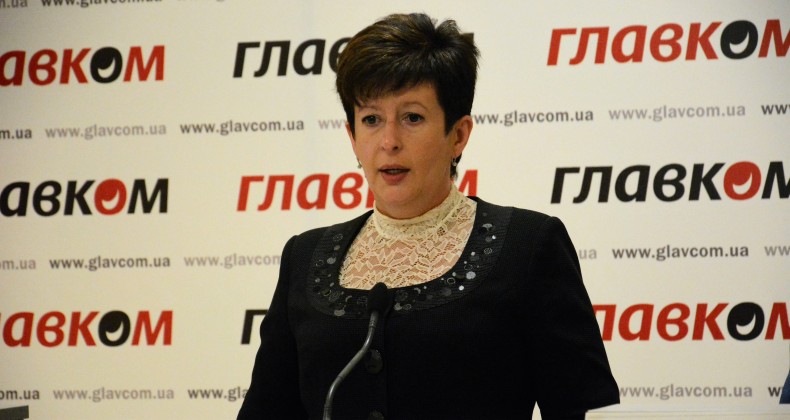
The bill is a framework document that determines long-term policy on national priorities and interests of ordinary citizens affected by the conflict. “Principles of state policy” are the basis for drafting laws and other legislative documents aimed at addressing issues related to overcoming the consequences of the armed conflict, ensuring human rights as the main value of state policy, resolving issues of social reconciliation, restoration of violated rights and reintegration, as well as preventing a recurrence of such situations in the future.
The bill introduces a fundamentally new approach – implementation of the principles of transitional justice, which has a long history and brings the rich international experience of post-conflict countries. Oleh Martynenko, head of analytics at UHHRU, stressed that Ukraine should work out its personal model of transitional justice, as world experience does not provide universal examples. The model of transitional justice, or simply transitional justice, requires the government to take coordinated action in four primary areas: compensation for victims of the armed conflict; prosecution of perpetrators; ensuring the right to know the historical truth about the course of events; and implementing institutional reforms to prevent a repeat of the conflict. The bill is based on framework thematic documents of the UN and the Council of Europe, as well as on the world experience with different models of transitional justice.
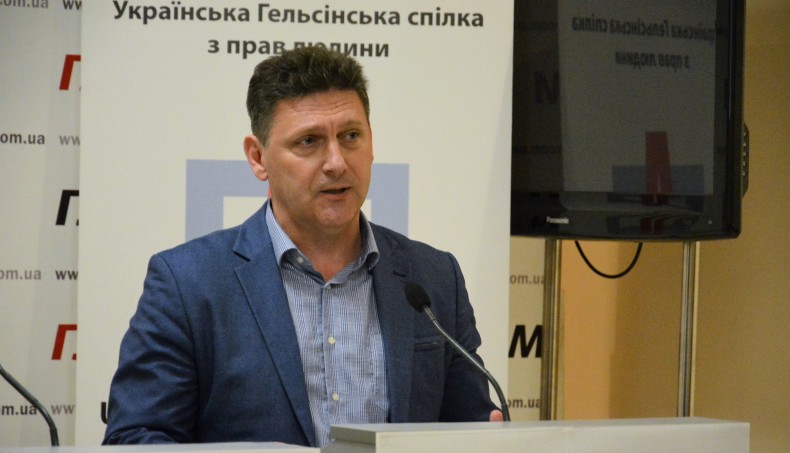
The “human dimension” of state policy, through the introduction of the principles of transitional justice, has become omnipresent, due to the fact that it was Ukraine’s human resources that became a target of such negative and complex challenges, specifically:
According to UHHRU Executive Director Oleksandr Pavlichenko, it is time to emphasize the urgent need for transitional justice, which should become an instrument for politicians. “The war cannot be won by military means and methods only. It is also impossible to overcome the people in uncontrolled territories of Ukraine this way and reintegrate them in Ukrainian environment – to bring them back to Ukraine,” he stressed. “We must think about those tools and mechanisms that will allow us to find compromise and build Ukraine’s future peacefully. The bill is going to be such a tool.
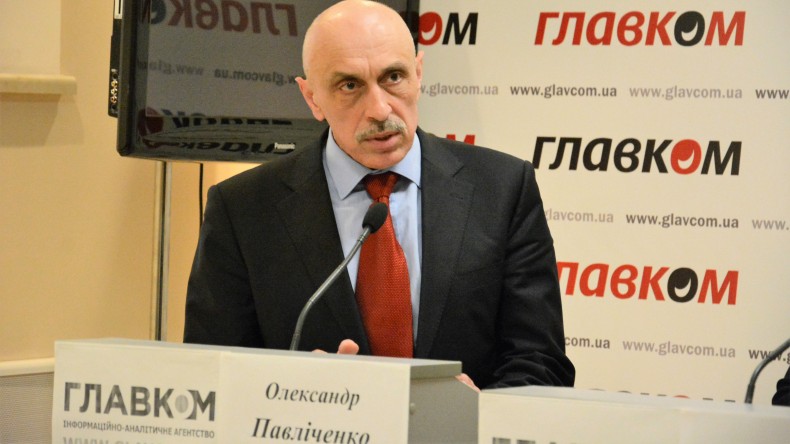
The bill’s authors are convinced that its adoption and implementation will satisfy the expectations of all social groups in Ukraine, the demands of territorial communities and requirements of the international community, as well as help promote public dialogue for integration in Ukrainian society, to ensure a common and objective view of events and their assessment.
If you find an error on our site, please select the incorrect text and press ctrl-enter.

Information about extrajudicial executions of Ukrainians by the Russian military and Russian torture chambers in...
28 September 2023
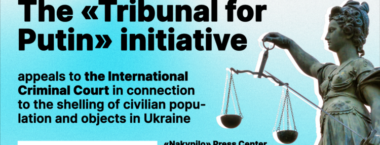
Since the onset of the full-scale invasion, the «Tribunal for Putin» initiative has recorded about...
18 August 2023
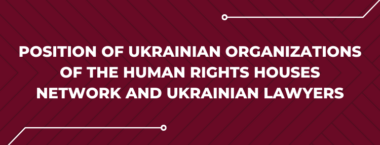
Position of Ukrainian organizations of the Human Rights Houses Network and Ukrainian lawyers on the...
17 July 2023

On June 6, 2023, the Southern Area Military Court of Rostov-na-Donu sentenced Mr.Bohdan Ziza, a...
08 June 2023